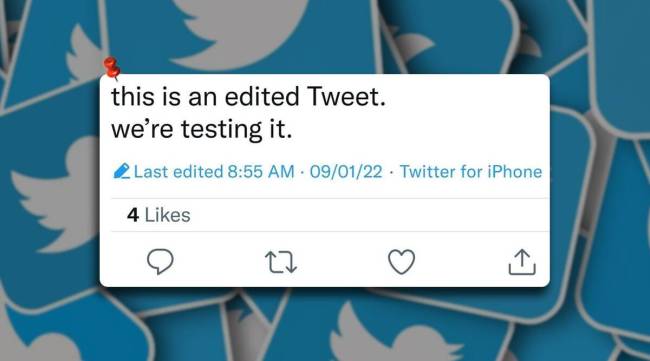Opinion Twitter’s edit button: What social media really needs is a ‘pause’ option
Aakash Joshi writes: By allowing people – even encouraging them -- to rethink what they say, Twitter might help undo some of the damage it has caused. But if this self-interest, and social value, isn't enough for Twitter to provide the service for free, there is another solution.
 Twitter's decision to make its “edit button” a paid feature seeks to maximise profits in the wrong area.
Twitter's decision to make its “edit button” a paid feature seeks to maximise profits in the wrong area. “The mission we serve as Twitter, Inc.”, according to the FAQs section on the social media company’s website for investors, “is to give everyone the power to create and share ideas and information instantly without barriers”. Barriers though aren’t always a terrible thing. And sometimes, sharing information and opinions “instantly” comes at a cost. The ability to edit tweets, then, is welcome and long overdue. As the company has stated, it has been the most requested feature from users.
But like the car manufacturers profiteering from safety features such as airbags, Twitter’s decision to make its “edit button” a paid feature seeks to maximise profits in the wrong area.
Many a celebrity and public figure has regretted an inebriated tweet, and likely wished for a breathalyser-based lockout system that saves them from having to justify an awkward post. TV comedian Kapil Sharma faced some serious flak for a 2017 tweet directed at the prime minister and government of India, for example, and former American senator Anthony Weiner accidentally tweeted intimate images, which eventually made him the poster boy for sexual misconduct in US politics.
But even those of us who aren’t in the public eye could benefit from the ability to make small corrections. There are the careless typos, the hurried bit of trolling and even the hastily-expressed political opinion that can paint a target on your back – an edit button could be a godsend. Yet, as much as users could do with the service, it is Twitter’s interest to provide it as well.
Long before Elon Musk began tarnishing its reputation, Twitter was notorious for vitiating the political conversation and encouraging some of the worst tendencies among us. Would the troll who threatens rape when he disagrees with the political opinions of an actress be as vile if he sat face-to-face, across her? Will the person who asks people to “go to Pakistan” at the drop of a hat, like a crazed bigot in a mob, do so alone over dinner? By allowing people – even encouraging them — to rethink what they say, Twitter might help undo some of the damage it has caused. But if this self-interest, and social value, isn’t enough for Twitter to provide the service for free, there is another solution.
What the micro-blogging platform really needs to introduce is a “pause” button. An edit takes place after the fact, by which time some enterprising person has often already taken a screenshot. What every user should be asked is: “Are you sure you want to say this?”. If they tag people, followed by abusing them, even a short wait time might help. And most importantly, this service should be universally-available.
The most pressing problem of the internet and social media emanates from the fact that it is so easy to forget that the person at the other end has genuine human feelings, and the capacity to be hurt. And while many companies and their promoters have become grossly rich through enhancing (though certainly not deliberately) this lack of empathy, it is already becoming a game of diminishing returns.
Now, as they try to address those issues, it might be a good idea to do so for free.
aakash.joshi@expressindia.com



